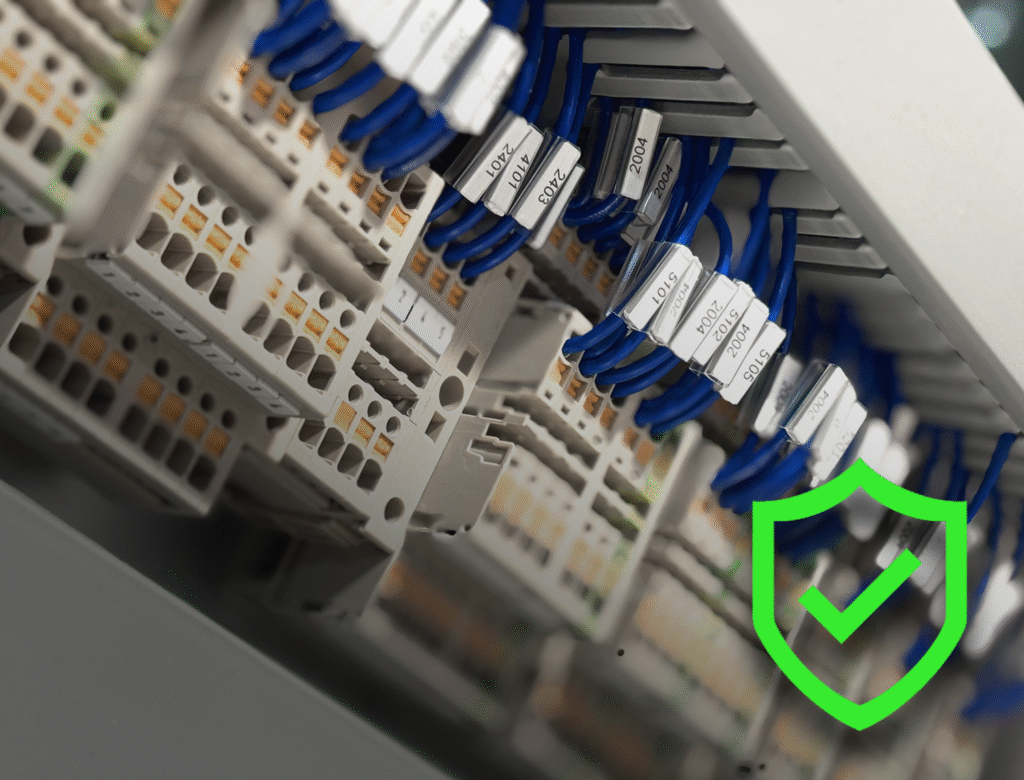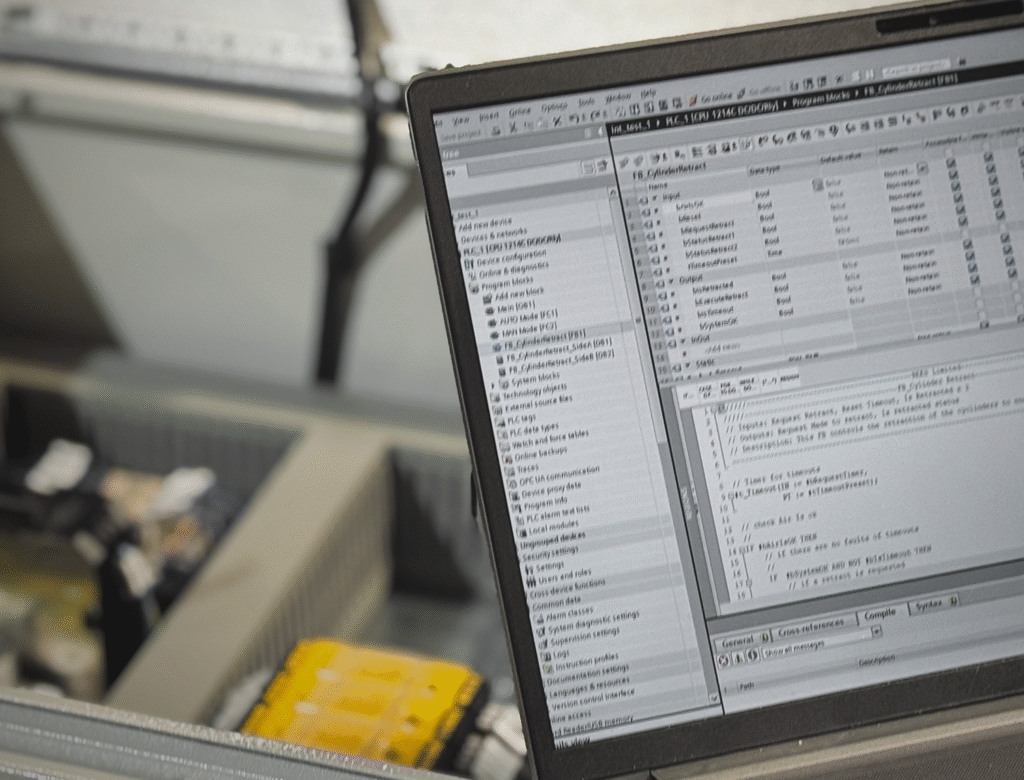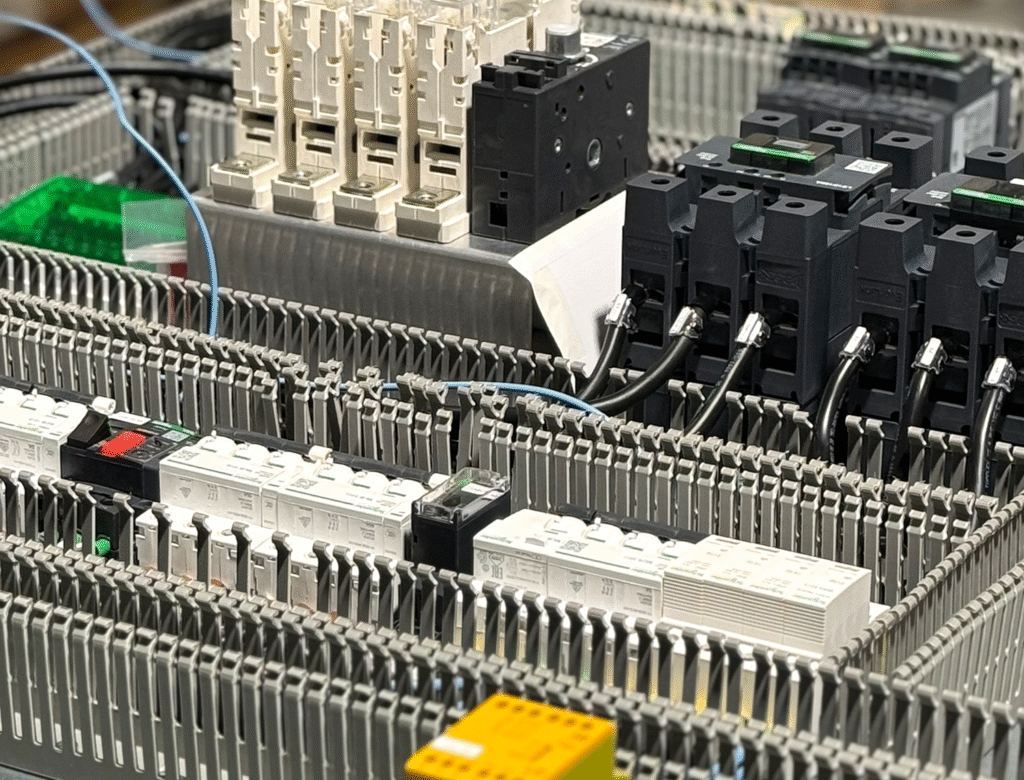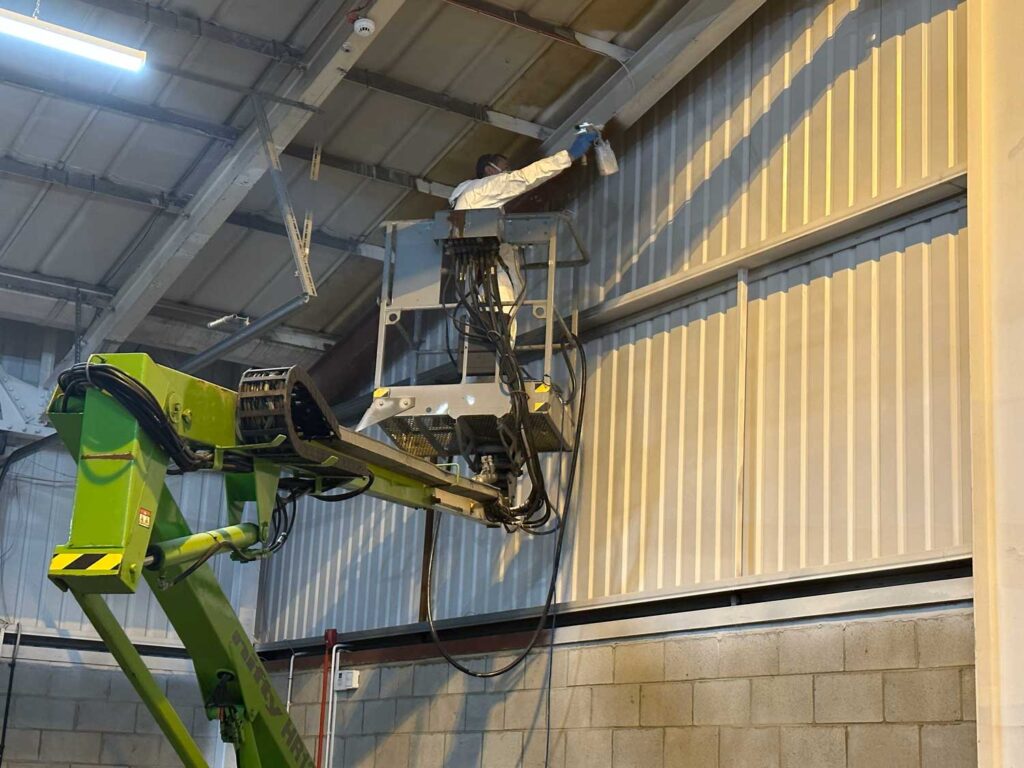1. The Role of Control Panels in Modern Machines
Control panels house the electrical and control components that manage how a machine operates – from start-up and shutdown, to temperature control, sequencing, safety, and data communication.
When designed and built correctly, they provide:
- Consistent, predictable operation
- Safe and compliant electrical control
- Ease of maintenance and troubleshooting
- Integration with PLCs, sensors, and HMIs for smarter control
A poorly designed or assembled panel, however, can lead to faults, electrical failures, and even complete system shutdowns.
2. How Quality Construction Improves Performance
A well-built control panel enhances machine performance in several ways:
Optimised Layout and Component Selection
Components positioned logically and wired neatly allow for efficient heat dissipation, better access for maintenance, and reduced electrical noise. Using high-quality, appropriately rated parts ensures stable performance, efficiency and longevity.
Reliable PLC Integration
Modern control panels often include Programmable Logic Controllers (PLCs) – the brains behind automation. Proper PLC integration allows for real-time control, faster response times, and improved process accuracy.
Reduced Electrical Failures
Attention to wiring standards, proper cable routing, and quality terminations dramatically reduce risks of shorts, loose connections, and signal interference.
Better Cooling and Protection
Panels designed with correct ventilation or air-conditioning systems prevent overheating, which is one of the most common causes of electrical faults and premature component failure.
3. Reliability Through Compliance and Testing
A key advantage of using a professional control panel builder is compliance with national and international standards (such as BS EN, IEC, and UL).
Rigorous testing before installation ensures that every circuit, sensor, and PLC program functions exactly as intended.
Testing may include:
- Continuity and insulation resistance checks
- Functional testing of PLC logic and interlocks
- Load and safety verification
The result? A system that operates reliably from day one.
4. Easy Maintenance and Future-Proofing
Well-built control panels don’t just perform well now – they’re designed for the future.
Clear labeling, accessible wiring, and properly documented layouts allow maintenance teams to work faster and safer.
Additionally, modular panel designs make it easier to upgrade or expand systems as new technologies emerge.
5. The Real-World Benefits
For production environments, a high-quality control panel can mean:
- Less downtime and fewer callouts
- Better process accuracy and product consistency
- Lower long-term operating costs
- Enhanced operator confidence and safety
In medical and scientific applications, such reliability translates to:
- Accurate, repeatable results
- Continuous operation of washers, disinfectors, or lab automation systems
- Compliance with strict healthcare regulations
6. Partnering With the Right Experts
Building reliable control panels requires more than just electrical know-how – it takes design expertise, standards awareness, and attention to detail.
At BEES, our Control & Automation team designs, builds, and installs bespoke control panels for a wide range of industries. From initial concept to commissioning, every panel is constructed to the highest standards to ensure performance, compliance, and long-term reliability.





